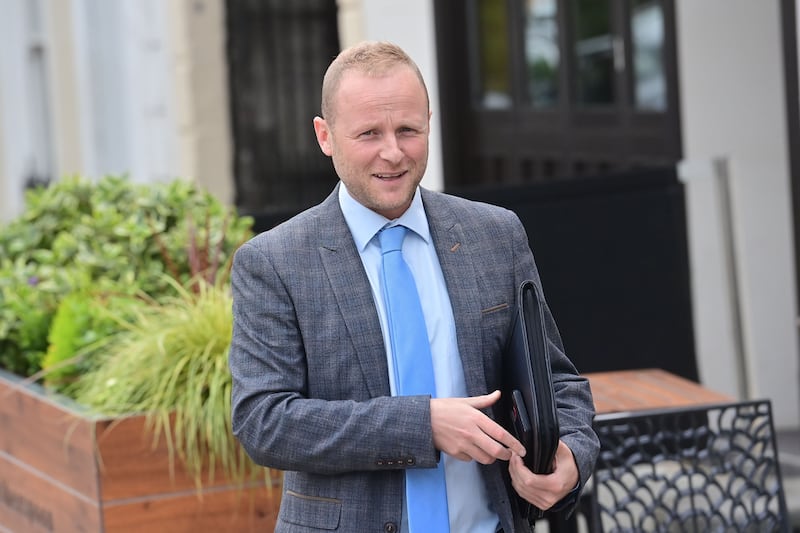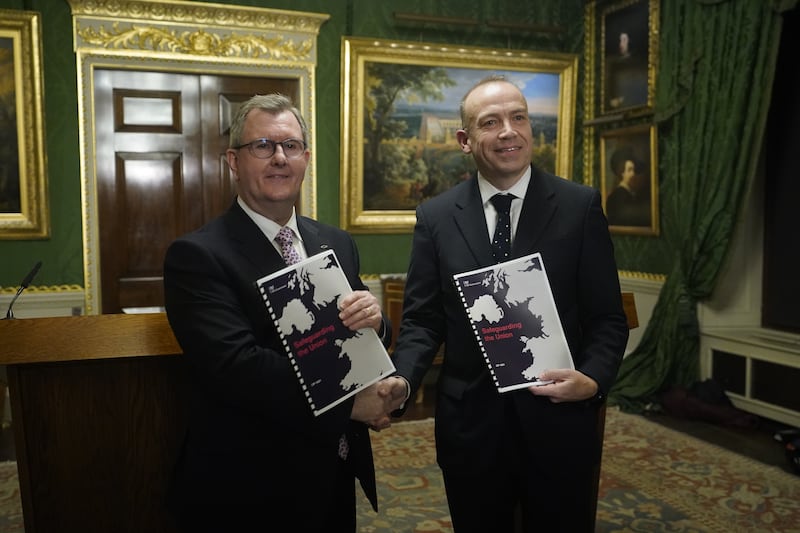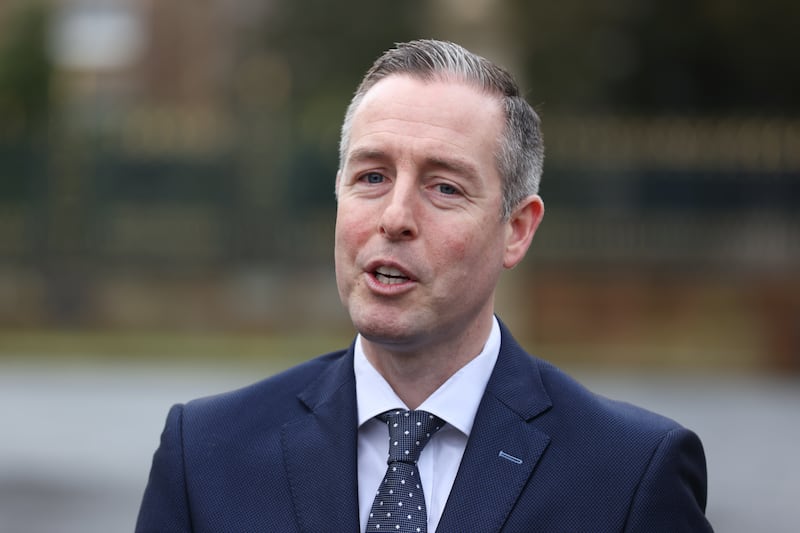RED Sky, Nama, RHI... given the scandals associated with the DUP over recent years, resignations from the party wouldn't be entirely unexpected. However, those closest to the dodgy dealings that have rocked Stormont in the recent past aren't the ones who've fallen on their swords. Instead, we have seen a small but significant exodus of figures regarded by many as future players, who weren't necessarily implicated in the various scandals.
Former Northern Ireland executive minister Simon Hamilton became the latest deserter from the DUP's ranks, abandoning his duties as an MLA to become chief executive of Belfast Chamber of Commerce.
With Sir Patrick Coghlin's RHI inquiry report still to come and an ongoing criminal investigation into the then finance minister's leaking of emails to journalists, Mr Hamilton is far from in the clear when it comes to being answerable for his past conduct. However, it seems his record in office will never again be tested at the polls.
It's been speculated that there are a number of reasons for the departure of the man once tipped as a potential DUP leader, including his health.
The 42-year-old suffers from Crohn's disease, a condition that can cause ulceration and inflammation in the digestive system, which isn't conducive to the lifestyle of a politician.
Elsewhere, he has been coy about how he voted in the EU referendum and it's widely believed that Mr Hamilton is a Remainer, disillusioned by his party's hardline stance on Brexit.
He's also characterised in some quarters as being relatively liberal in a party founded by religious fundamentalists, however, with the exception of his mild manner, there's little to suggest he's progressive or in any way out of step with DUP policy. In the past, the Strangford MLA spoke in opposition to same-sex marriage and has been associated with creationist pressure group the Caleb Foundation.
What is arguably the main factor in Mr Hamilton's career change is the lack of a Stormont executive and the limited opportunity to affect political change.
While the two governments appear eternally optimistic about the prospects of devolution returning soon, other believe the process of rebuilding trust and confidence may take a while longer.
It was the collapse of the executive in January 2017 that saw former DUP special adviser Richard Bullick seek paid work elsewhere, joining Belfast-based PR and public affairs company MCE.
An adviser to Peter Robinson when he was first minister and then to Arlene Foster, Mr Bullick was regarded as one of his party's more pragmatic voices, a moderate foil to his more traditional counterpart Timothy Johnson.
There's suspicions that he too is sceptical about the benefits of Brexit but ultimately we can only conclude that his departure was precipitated by potential economic disruption of a more personal kind.
It was the reduction from six to five seat constituencies in 2017 that led former MLA Alastair Ross to quit politics at a time when many believed he was destined for greater things. The 38-year-old had been a junior minister in the last executive and close to Mrs Foster but realised the DUP was unlikely to retain three Stormont seats in East Antrim.
He jumped ship to Belfast-based PR and public affairs company Weber Shandwick ahead of the last assembly election and subsequently became an electoral commissioner, having been nominated by the DUP.
On the surface it seems that none of the above resignations were prompted by major political differences, yet at the same time it's difficult to discount the current state of the DUP as a contributing factor.
It is party at a crossroads in a political landscape that is shifting fast. The broader optimism that first greeted Arlene Foster's accession to leader evaporated in the storm surrounding RHI, while the dogged determination to deliver Brexit on the same terms as Britain has brought the party into open conflict with farmers and the business community, key constituencies that had been eagerly courted over previous years.
It remains to be seen whether Mrs Foster prevails after what is expected to be a damning RHI inquiry report, meanwhile there is also growing internal division over the party's stance on same-sex marriage, which the DUP will continue to oppose but is increasingly unlikely to be a position to block.
Over the same period that the DUP has lost three of its rising stars, there have been other resignations and fall-outs within the party's ranks.
Veteran Jim Wells, one of the party's most loyal servants, has been sidelined and is unlikely to be selected as a Stormont candidate in future, while David McIlveen, a former MLA from the Free Presbyterian wing of the party has also left under acrimonious circumstances.
Many commentators already feel that compared 15 years ago there is a dearth of talent in the north's two biggest parties and that finding the personnel capable of filling future executive posts could prove challenging.
The DUP may well hope Simon Hamilton's departure is the last for some time.








